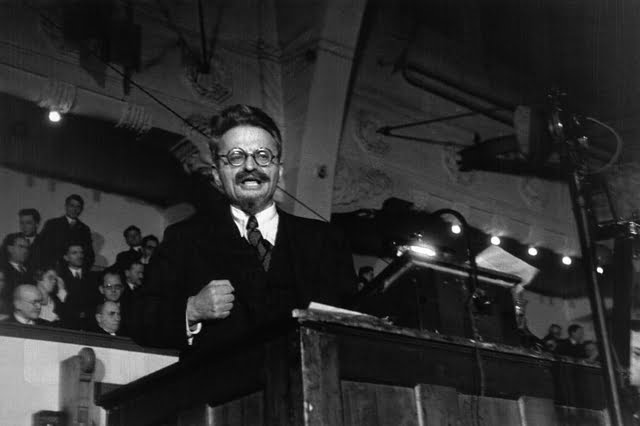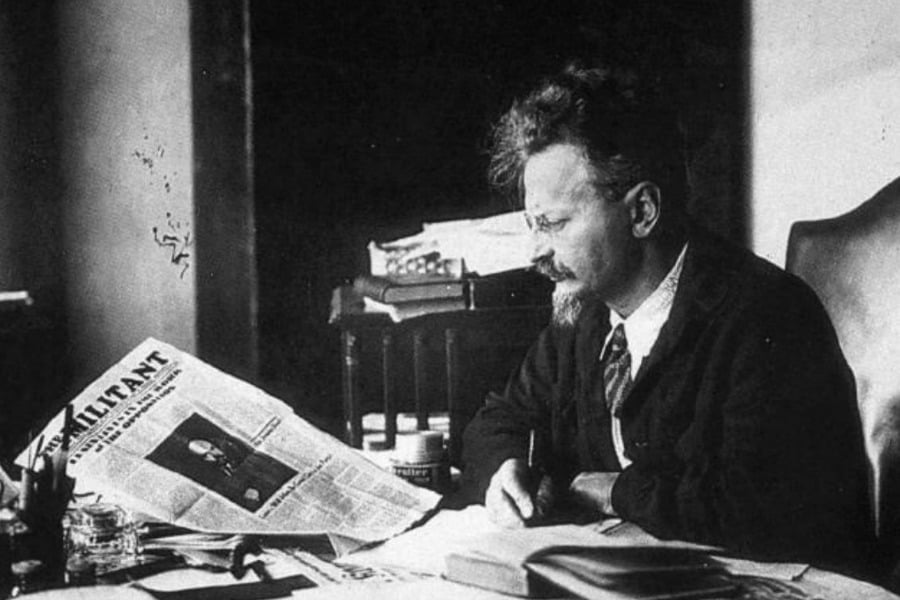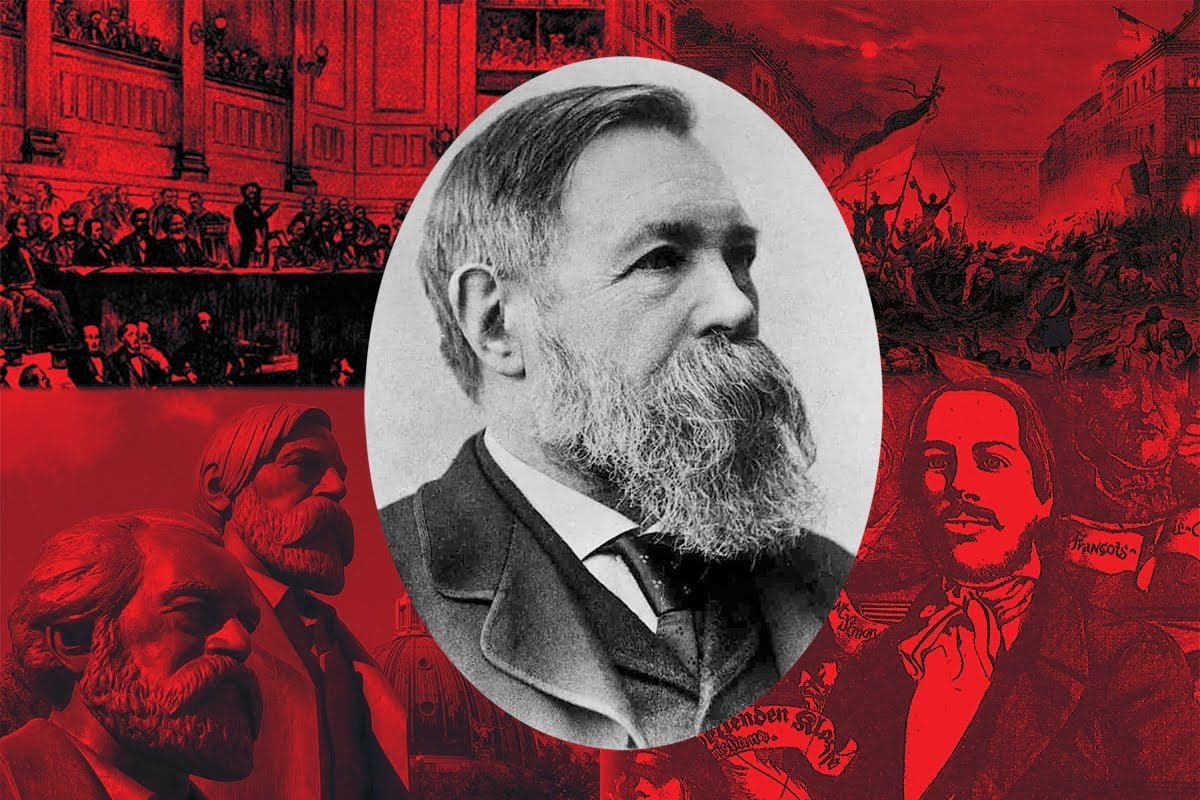You can find the text of In Defence of October on marxist.com.
Short Background
“In Defence of October” is the title of a speech delivered by Trotsky to a meeting of Social Democratic students in Copenhagen, Denmark in November 1932. At that time, he was living in exile on the island of Prinkipo, Turkey – a “man without passport”, since his Soviet citizenship was removed by the Stalinist bureaucracy.
In the speech, Trotsky analyses the dynamics of a real and successful revolution – the October Revolution in Russia in 1917, where he himself played a decisive role. Through that, he explains a number of core concepts of the Marxist approach to a revolution, and historical development in general, and answers a number of misconceptions and attacks raised against the Marxist method.
Questions
- What was the 2nd (Social Democratic) International? Why did it collapse?
- What is the “materialist conception of history”? How does it differ from mainstream approaches to history?
- What is the role of individuals in history?
- What important part in a revolution is missed by Malaparte?
- What is a revolution?
- What is a revolutionary party? What is its role in a revolution?
- What is the difference between an insurrection and a revolution, according to Trotsky?
- Why are revolutions so rare?
- Why did the revolution happen in Russia? Wouldn’t it be better if it had started in a more economically advanced country, like Germany?
- What is the role of peasants in a revolution? How does this apply today?
- How did the Bolsheviks approach the “national question”? What implications does this have for independence movements today?
- What is the theory of the Permanent Revolution, and how does it apply to Russia? Are there other examples?
- Sometimes Stalinists claim that the “bourgeois” part of the revolution took place in February 1917, and in October you had the second, “socialist” part. Hence, “permanent revolution” wouldn’t apply. What do you think about this argument?
- What happened in Russia in 1905? Why would this be important 12 years later?
- Was the success of the Bolsheviks based just on good organisational techniques?
- What are the limitations of individual terrorism?
- Should a revolution be violent?
- Did the Russian Revolution achieve anything? How does Trotsky quantify its successes?
- “Capitalism has outlived itself as a world system”. What does Trotsky mean with this phrase? Is its collapse automatic? Is socialism inevitable?
- Were there any problems in the young Soviet Union? Could they have been avoided? How do they connect to the future degeneration of the revolution?
Glossary
International Socialist Congress: Conference of the 2nd International in 1910. Among the decisions, there was firm opposition against the upcoming war and the Social Democratic parties agreed to take all possible actions to stop it.
The 1905 Revolution: For a quick summary, see Part 2 of the Bolshevism reading guide.
Muzhik: The Russian name for a peasant. Sometimes used colloquially to mean ‘a man’.
Soviets: From the Russian word meaning advice or council. The soviets were democratically elected workers’ councils composed of delegates from the workplace.
Kolkhoz: A collective farm.
Gosplan: The state planning agency.






